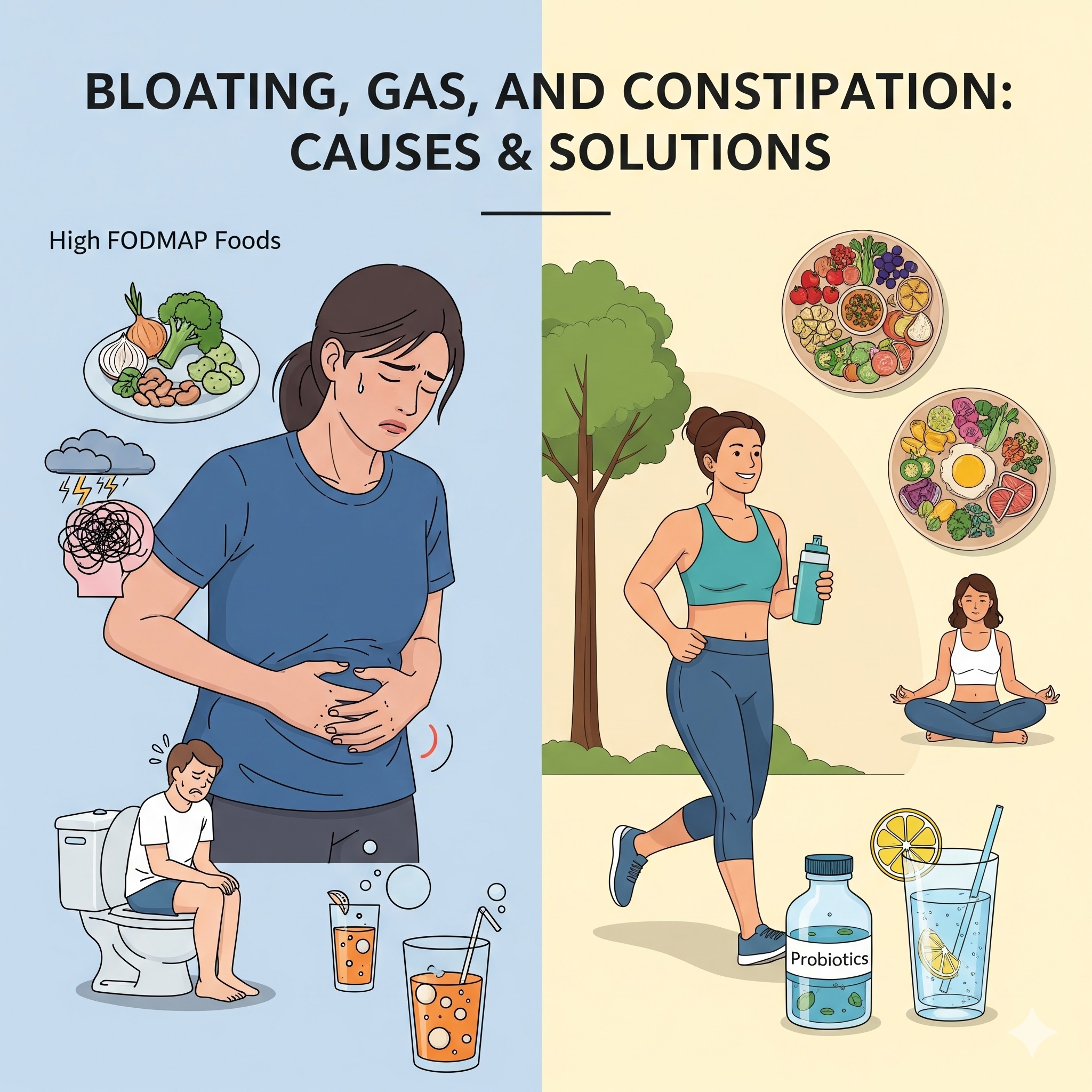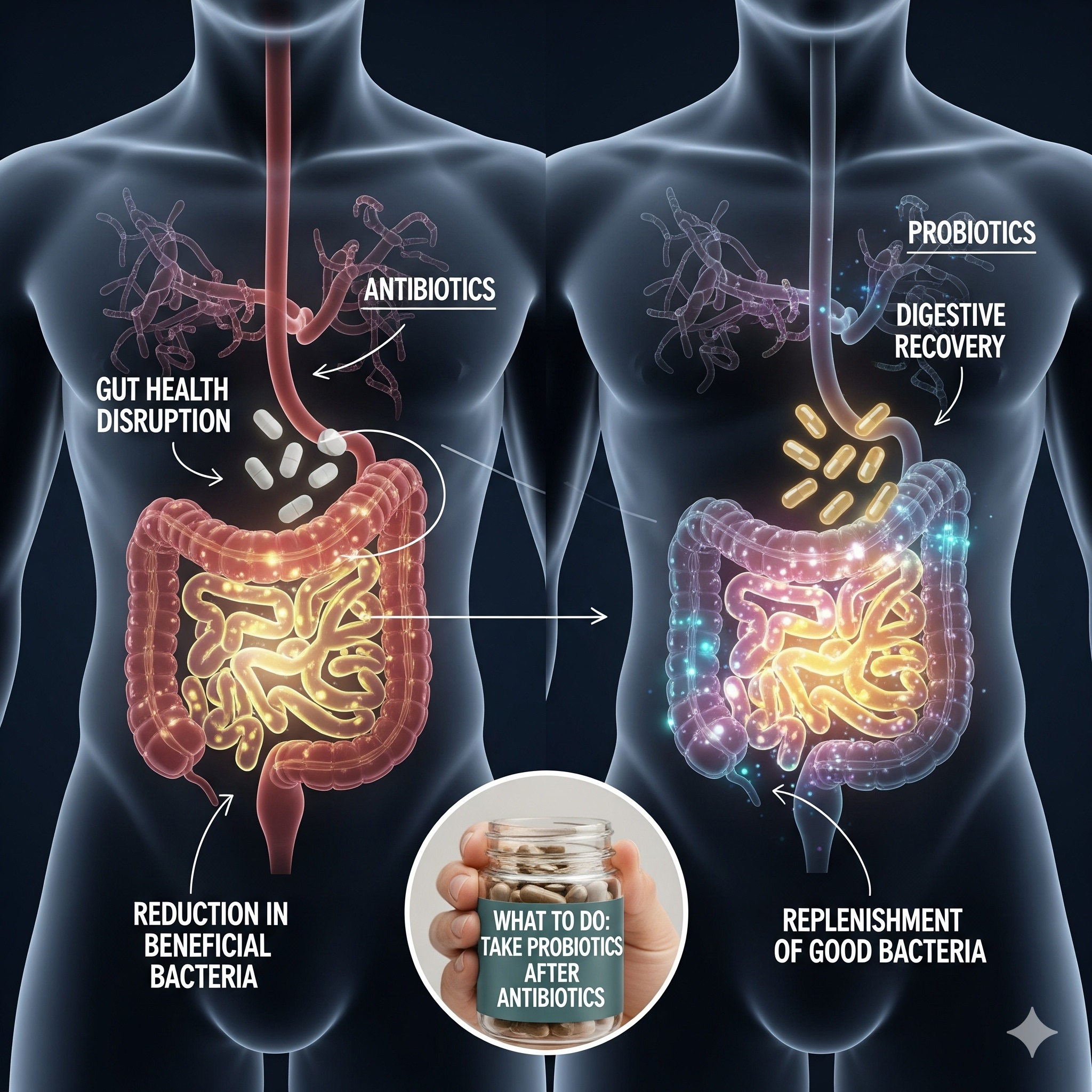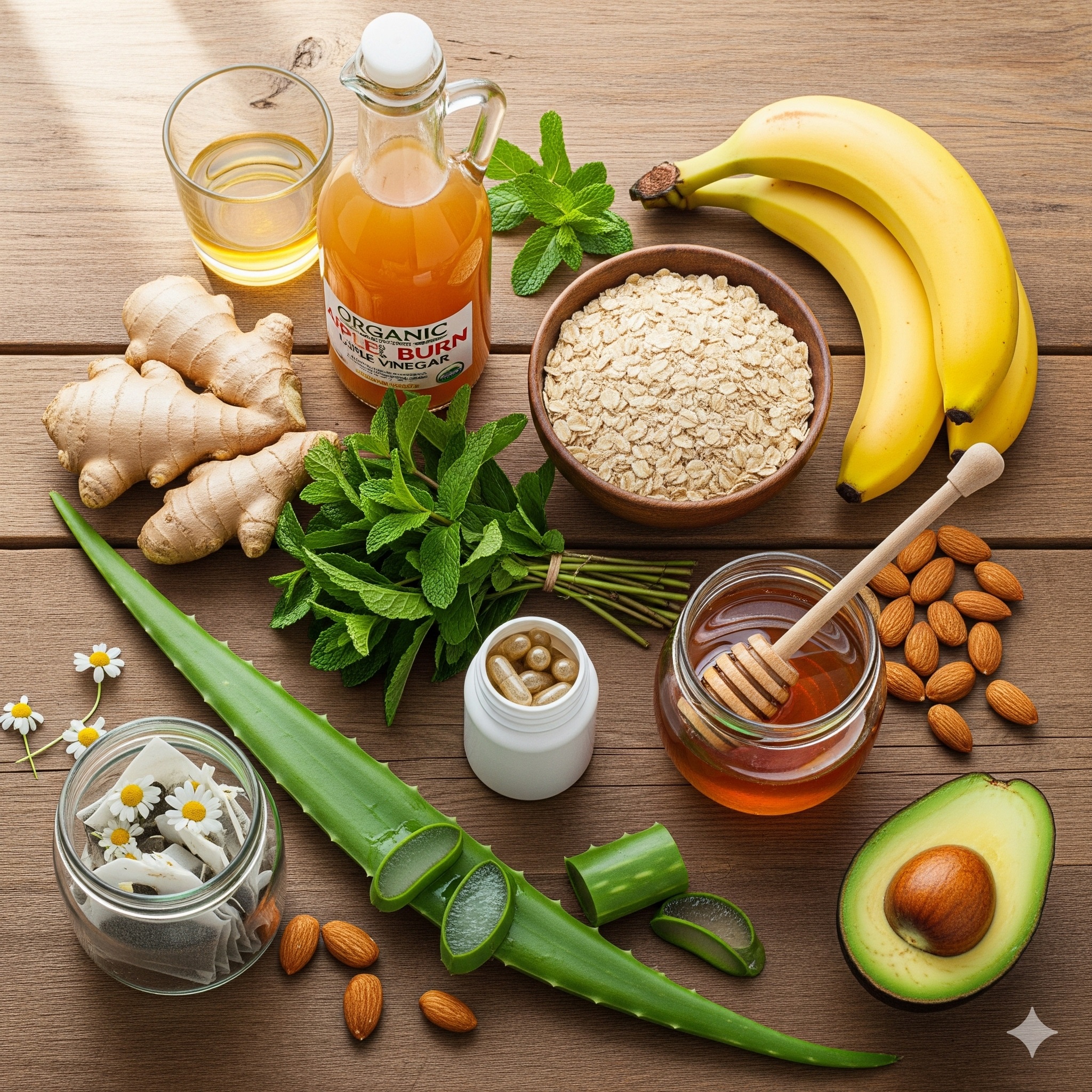Digestive discomfort is something most people experience at some point in their lives. Among the most common issues are bloating, gas, and constipation. While usually not life-threatening, these problems can be frustrating, uncomfortable, and even disruptive to daily life. Understanding what causes these digestive troubles and learning practical ways to manage them can make a big difference in overall health.
In this article, we’ll explore the root causes, provide effective bloating remedies, highlight strategies for constipation relief, and share proven digestive health tips for long-term balance.
Understanding Bloating, Gas, and Constipation
Bloating
Bloating is the sensation of fullness, tightness, or swelling in the abdomen, often accompanied by visible distension. It may occur after meals or persist throughout the day.
Gas
Gas is a natural byproduct of digestion. However, excessive gas or difficulty releasing it can cause pain, pressure, and embarrassment.
Constipation
Constipation refers to infrequent or difficult bowel movements. While occasional constipation is common, chronic issues may indicate underlying problems with gut health or diet.
Common Causes of Digestive Discomfort
Several factors contribute to bloating, gas, and constipation. Recognizing them is the first step toward finding the right solutions.
- Poor Diet Choices
- High intake of processed foods, fried items, or artificial sweeteners.
- Low fiber intake, which slows bowel movements.
- Overeating and Eating Too Quickly
- Eating large meals or swallowing air while eating can cause bloating and trapped gas.
- Food Intolerances
- Lactose, gluten, or FODMAP sensitivities often trigger digestive problems.
- Dehydration
- Without enough water, stools become hard and difficult to pass.
- Lack of Physical Activity
- Sedentary lifestyles slow down digestion and lead to constipation.
- Gut Imbalances
- Dysbiosis (imbalance of gut bacteria) contributes to excess gas and irregular digestion.
- Stress and Anxiety
- The gut-brain connection means emotional stress often translates into digestive discomfort.
- Medical Conditions
- IBS, IBD, hypothyroidism, or certain medications can worsen symptoms.
Effective Bloating Remedies
When it comes to bloating remedies, small daily changes can bring significant relief.
- Eat smaller, more frequent meals instead of large portions.
- Avoid carbonated drinks that introduce extra gas into the stomach.
- Limit salt intake to reduce water retention.
- Try peppermint tea or capsules, which relax intestinal muscles.
- Identify food triggers by keeping a food diary.
- Practice mindful eating—chew thoroughly and avoid rushing meals.
Strategies for Constipation Relief
Chronic constipation can affect energy levels, mood, and gut health. Here are some practical constipation relief strategies:
- Increase Fiber Intake
- Aim for 25–35 grams daily from fruits, vegetables, whole grains, and legumes.
- Stay Hydrated
- Drink 8–10 glasses of water daily to soften stools.
- Exercise Regularly
- Walking, yoga, or core-strengthening exercises stimulate bowel movements.
- Create a Bathroom Routine
- Go at the same time each day, ideally after meals.
- Limit Processed Foods
- Replace refined grains with whole grains to improve digestion.
- Consider Probiotics
- Supplements or fermented foods can balance gut bacteria and support bowel regularity.
Gas Management Tips
Excess gas often results from diet or swallowing air, but there are simple ways to reduce discomfort:
- Avoid chewing gum and drinking through straws, which increase air intake.
- Limit high-gas foods like beans, lentils, onions, and cruciferous vegetables if you’re sensitive.
- Try activated charcoal supplements (with professional guidance).
- Use gentle abdominal massage to help release trapped gas.
- Take probiotics to support microbial balance.
Long-Term Digestive Health Tips
Preventing bloating, gas, and constipation often comes down to maintaining overall digestive wellness. Here are some science-backed digestive health tips:
- Follow a balanced diet: Prioritize fiber, lean proteins, and healthy fats.
- Include fermented foods like yogurt, kefir, kimchi, and sauerkraut.
- Manage stress: Practice meditation, deep breathing, or light exercise.
- Get quality sleep, as poor rest affects both gut motility and microbial balance.
- Limit alcohol and caffeine, which can dehydrate and irritate the gut.
- Listen to your body: Don’t ignore the urge to go to the bathroom.
When to See a Doctor
While lifestyle adjustments usually help, persistent symptoms may indicate a medical issue. Seek professional help if you experience:
- Severe abdominal pain
- Blood in stool
- Unexplained weight loss
- Chronic constipation lasting more than 3 weeks
- Persistent bloating that doesn’t improve with diet changes
Final Thoughts
Bloating, gas, and constipation are common digestive complaints, but they don’t have to control your life. By focusing on bloating remedies, incorporating constipation relief strategies, and following practical digestive health tips, you can restore balance to your gut and improve overall well-being.
Making small, consistent lifestyle changes—like eating more fiber, staying hydrated, managing stress, and being physically active—can go a long way in preventing future discomfort.
Remember: A healthy gut is not only the key to comfortable digestion but also to long-term physical and mental health.




